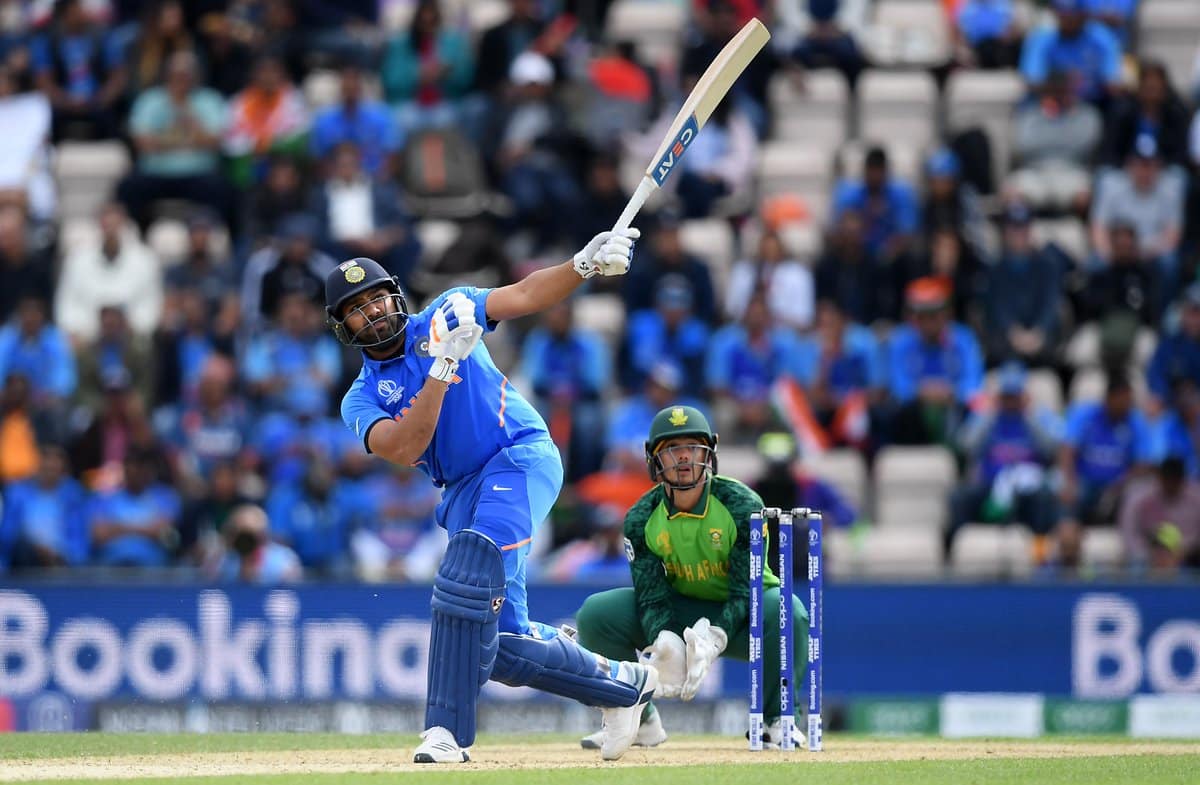The Proteas sunk to a six-wicket defeat at the hands of India in Wednesday’s World Cup fixture in Southampton.
The defeat is the third of South Africa’s campaign – and all but cancelled contention for a berth in the semi-finals. They can draw inspiration from former champions Pakistan, though, whose first five matches of the 1992 World Cup brought just one win en route to the title.
Pursuing a modest 228-run target, India banked on a fine century from opening batsman Rohit Sharma in triumph with 15 deliveries to spare.
Fast bowler Kagiso Rabada’s early removal of the dangerous Shikhar Dhawan afforded the Proteas some hope, but Sharma and former captain Mahendra Singh Dhoni gradually stifled the contest.
Seamer Andile Phehlukwayo relished an acrobatic catch from wicketkeeper Quinton de Kock to get rid of captain Virat Kohli, while middle-order kingpin KL Rahul was Rabada’s second victim, but South Africa had to wait almost 15 overs for a fourth wicket.
Sharma and Dhoni were clinical, collaborating through a 74-run alliance that severely exposed an opposition attack minus the services of fast bowlers Lungi Ngidi and Dale Steyn. Ngidi was sidelined by a hurt hamstring – and Steyn has been ruled out of the tournament by a shoulder injury.
Rohit’s 122 not out marked the 22nd century of a prolific ODI career – and third against South Africa. He or leg-spinner Yuzvendra Chahal will likely be named Player of the Match.
Dhoni departed late in the piece, leaving the hard-hitting Hardik Pandya to bang three boundaries during a brash cameo, which hastened and compounded the Proteas’ pity.
Earlier, captain Faf du Plessis named wrist spinner Tabraiz Shamsi and the veteran Hashim Amla in the XI. Shamsi was Ngidi’s replacement after Amla was favoured to fellow batsman Aiden Markram.
Du Plessis became only the second captain to opt to bat first in the 2019 tournament, but the Proteas failed to capitalise. Instead, the same bowlers that resigned South Africa to a five-one ODI series defeat last year succeeded again.
Wrist spinners Yuzvendra Chahal and Kuldeep Yadav and seamer Jasprit Bumrah shared 41 wickets in early 2019’s six ODIs – and this time collectively snared seven.
Chahal deceived du Plessis and Phehlukwayo with sharpish turn – and late dip was the undoing of the right-handed Rassie van der Dussen and left-handed David Miller. Bumrah, meanwhile, was responsible for ending the threats posed by Amla and de Kock.
The total would have read substantially less, too, had all-rounder Chris Morris and tail-ender Rabada not equalled South Africa’s highest seventh-wicket partnership in World Cup cricket. Batsman Daryll Culllinan and all-rounder Shaun Pollock also managed 66 against Zimbabwe during the 1999 tournament at Chelmsford.
South Africa have 10 days to regroup prior to 15 June’s meeting with Afghanistan at Sophia Gardens in Cardiff, Wales.
Photo: Getty Images





